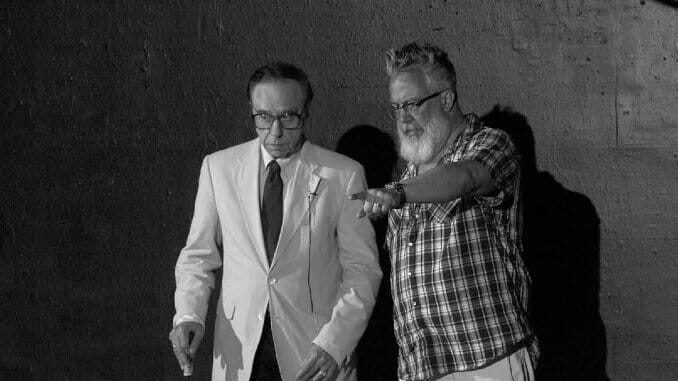The Peter Bogdanovich I Knew
Photos Courtesy of Gino Mifsud
It’s not always a wise choice to meet your idols. Especially when they have a reputation for not suffering fools gladly, as Peter Bogdanovich most certainly did. So I’m sure my hands were literally trembling when I went over to introduce myself to him on a warm Sarasota evening.
It was the Closing Night Gala of the Sarasota Film Festival. Tom Hall had invited me as a juror, thank God, and Peter as a special guest. We stood for at least an hour at opposite ends of the VIP section in our respective spring suits and ties, sipping champagne and looking up at the Florida stars, before I eventually found the courage to cross over to him.
If it all sounds like the beginning of a Hollywood rom-com, that’s actually not far off from how it felt, at least to me (and trust me, Peter would have loved that anyway; he was especially passionate about romantic films). My greatest hero is my father. His favorite film of all time is The Last Picture Show. So the Bogdanovich name was sacred to me from an early age. My admiration only grew as I explored his other films—What’s Up, Doc?, Paper Moon, hell I even loved the ones that critics sniffed at, like Daisy Miller. And once I discovered his writing? I positively swooned over Peter Bogdanovich.
So that night under the Florida stars, I mustered up my best confident face, walked over and said, “Everything I’m trying to do in my career, Peter Bogdanovich already did bigger and better.” It was one of my stock lines, even before I ever met the great man. Peter was a critic, an interviewer, a curator and a filmmaker. Exactly the four roles I play in my own, much more modest film life. To my great relief, he laughed slyly.
We hit it off immediately. We started talking about classic films, and his face lit up. I asked what he was working on currently, and he told me about a new project he was putting together (She’s Funny That Way, which he did end up making, and which I found delightful). He asked me about my own filmmaking. He asked me what I thought of the film he was acting in that was playing the festival, Cold Turkey, and really listened and considered my answers (I loved it, especially the performances by Peter and the wonderful Alicia Witt). In fact, from early in that initial conversation, once he had satisfied himself that I knew what I was talking about, he treated me not as a fan but as a true colleague. From that day forward, for the rest of our friendship.
-

-

-

-

-

-

-

-

-

-

-

-

-

-

-

-

-

-

-

-

-

-

-

-

-

-

-

-

-

-

-

-

-

-

-

-

-

-

-

-








































